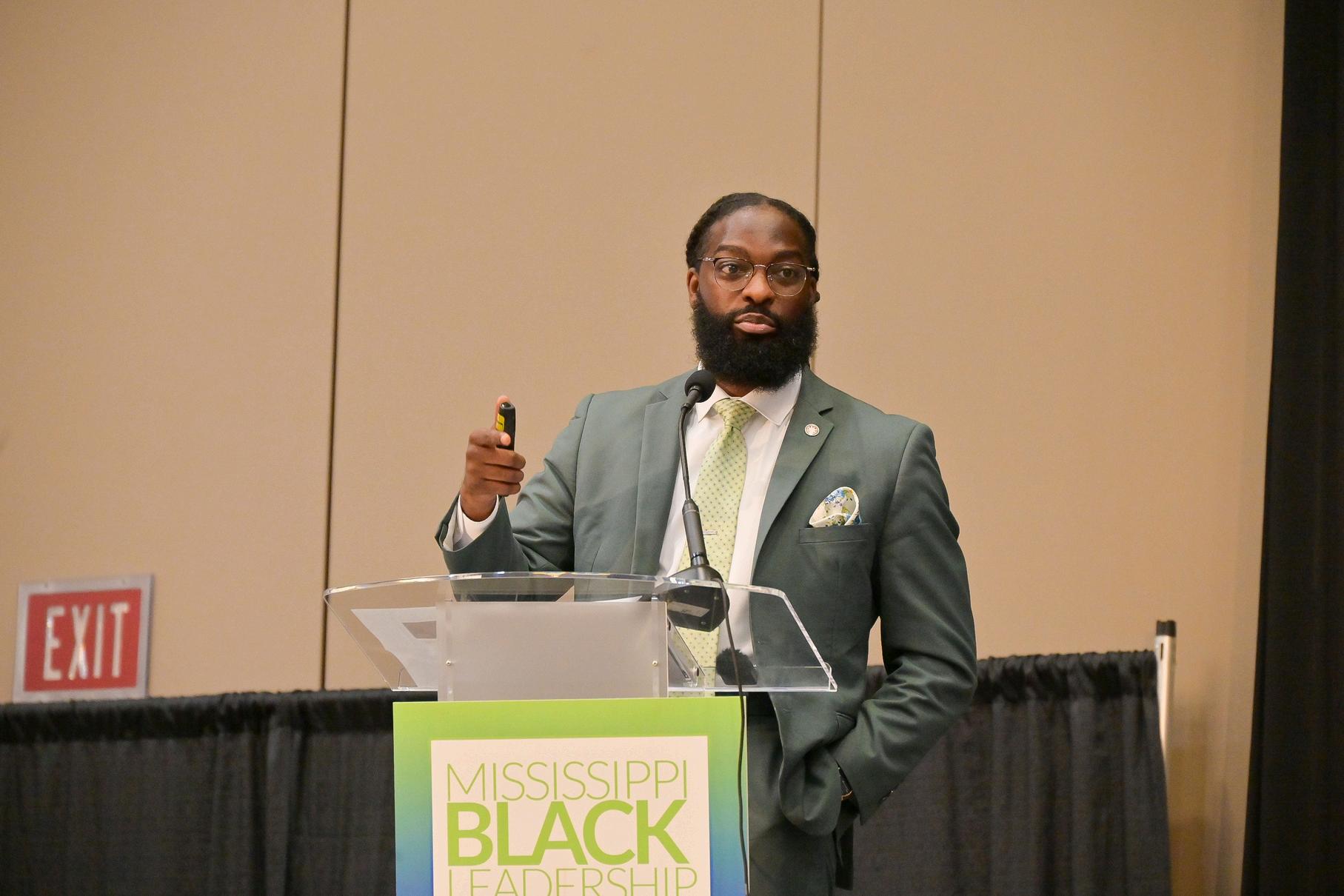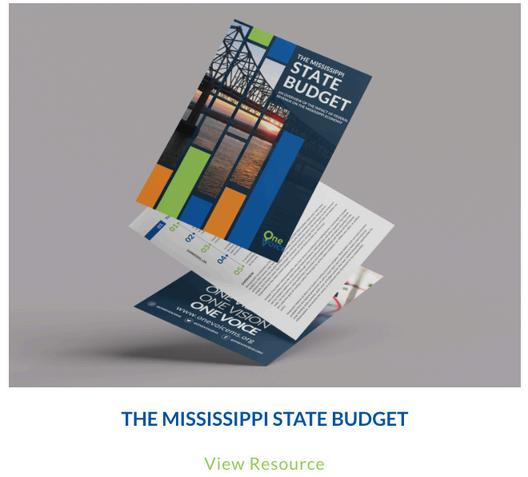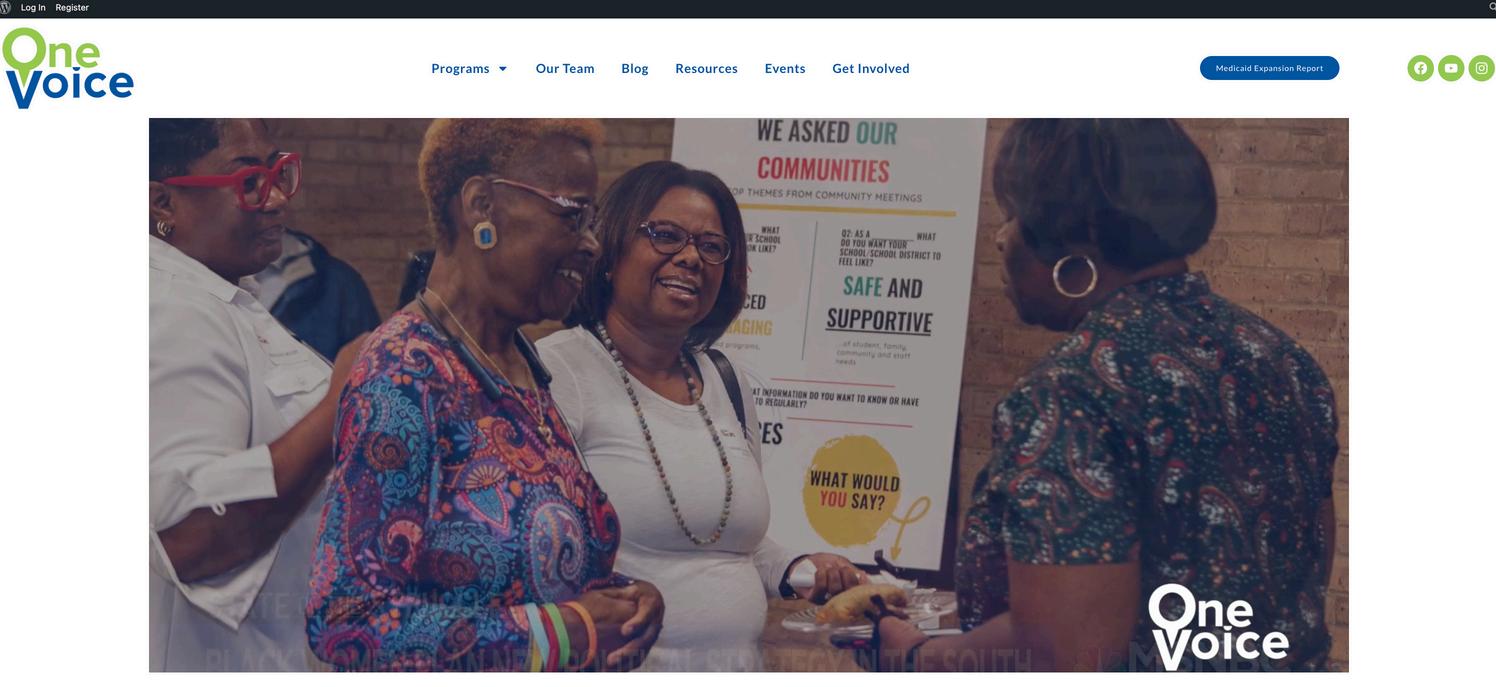




Our vision is clear: We envision a Mississippi where we all thrive. In this future, every resident has access to the tools and resources needed to succeed, regardless of their background or circumstances. As such, One Voice’s 2025 Legislative Priorities pave the way for a just future by advocating for policies that promote social and economic justice, while maintaining a steadfast commitment to empowering communities to engage in the issues most impacting their lives. Together, we can break down barriers and build a state that reflects our shared values of equity, opportunity, and inclusivity, ensuring that no one is left behind and that our goal of creating a better future for Mississippi is realized.


Guided by principles of self-determination, One Voice ensures historically silenced communities have representation and influence in spaces of power.
We envision a Mississippi where we all THRIVE.


We envis on a Miss ssippi where every child, no matter their ZIP code, race, or income level, attends a ful y funded school that s equ pped with the resources and support needed to prov de a high-quality, wel -rounded education.
Expand quality state-funded pre-K education programs
Ful y fund the Mississippi School Funding
Formu a
Keep publ c dol ars in public schools
Expand community schools
End corporal punishment n K-12 schools
Increase access and affordability in our h gher education system

We envision a Mississippi where crimina justice promotes safety and dignity
Reduce mass incarceration
Improve prison conditions
Reform the state’s bail pract ces
Reduce collateral consequences, decrease recid v sm, and increase access to reentry
We envision a Mississippi where the polit cal process is accessible to a l, a low ng every ind v dual to have their voice heard and counted
End fe ony disenfranchisement and enact an effective suffrage procedure
Expand vot ng rights
Restore the states ballot initiative process
Eliminate unnecessary voter purges
We env sion a M ssiss pp where every resident has access to clean, renewable energy sources, ensuring an equ table d stribution of resources that leads to a sustainab e future for all.
Expand access to reliable, high-speed nternet access
Invest in renewable energy to stimulate economic growth and prov de susta nable communities
Increase funding for util ty access in Mississ pp
Strengthen democratic infrastructure that promotes environmental equity
We env sion a Mississipp where equ table systems reduce poverty and encourage economic mobility, enabling fami ies to support one another and bu ld stronger, more resil ent communit es.
Improve the state’s budget-making process to nclude open, inclusive budgeting
Strengthen the state’s ncome tax system
Enact Earned Income Tax Credit
Enact a Child Tax Credit
Tackle the states high grocery tax
Expand Medicaid
Reform M ssiss pp ’s Temporary Ass stance for Needy Families (TANF) Program
Reform M ssiss pp 's Supplemental Nutrition Assistance Program (SNAP)
Adopt Paid Family and Medical Leave
Implement a state liveable wage
Reduce child hunger

Historically, the ballot initiative process allowed citizens to propose legislation directly, ensuring their voices were heard in government decision-making when the Legislature refused to address issues that mattered to them.
By reinstating a fair and accessible ballot initiative process, Mississippi can enhance civic engagement, reduce barriers to political participation, and ensure that citizens have a direct avenue to influence legislation that affects their lives.





Lawmakers must end felony disenfranchisement and establish a clear and effective suffrage process for citizens seeking to regain their voting rights.
By implementing policies that not only abolish felony disenfranchisement but also create a straightforward procedure for requesting suffrage until that goal is realized, Mississippi can restore voting rights to those disenfranchised, thereby reducing disparities created by restrictive voting practices and promoting equitable participation in the state’s electoral process.
Felony disenfranchisement: the practice of taking away a person's right to vote because they have been convicted of a felony.
Number of Mississippians disenfranchised: 68,731
Number of Black Mississippians disenfranchised: 43,744
Policyrecommendations:

Pass laws to automaticallyrestore voting rights once individuals complete their sentences, including parole and probation.
If automatic restoration is not enacted, lawmakers can simplify the process for regaining voting rights by eliminating unnecessary delays and burdensome requirements of the state’ssuffrageprocedure.
List of 23 disenfranchising crimes:
Voter Fraud
Murder
Rape
Bribery
Theft
Carjacking
Arson
Obtaining money or goods under false pretense
Perjury
Forgery
Embezzlement
Bigamy
Armed Robbery
Extortion
Larceny
Felony Bad Check
Felony Shoplifting
Receiving Stolen Goods
Robbery
Timber Larceny
Unlawful taking of motor vehicle
Statutory Rape
Larceny under lease or rental agreement



Mississippi’s tax system is critical for funding essential public services like education, healthcare, and infrastructure. However, the state’s tax structure is inadequate for generating enough revenue to support these services. In addition, as a result of our tax system, income disparities are larger in Mississippi after state and local taxes are collected than before.
The state’s regressive tax system adversely affects its ability to raise revenue, contributes to the disinvestment of our local communities, and worsens existing inequalities amongst the state’s residents.


Taxing wealth to ensure that the state’s wealthiest individuals pay what they owe
Strengthening, not eliminating, the state income tax
Reinstating the corporate tax and estate tax
Taxing wealth to ensure that the state’s wealthiest individuals pay what they owe - Strengthening, not eliminating, the state income tax - Reinstating the corporate tax and estate tax - Expanding the sales tax base to include internet businesses and travel companies
Expanding the sales tax base to include internet businesses and travel companies

Mississippi is one of ten states that have yet to expand Medicaid. As a result, currently there are over 200,000 uninsured adults with incomes below the poverty line who are currently caught in the Medicaid coverage gap.
By expanding Medicaid, Mississippi could not only increase access to healthcare, it could also help reduce health-related disparities and improve the stability of health systems, including rural hospitals and community health centers.



In Mississippi, around 200,000 uninsured adults with low incomes fall into the Medicaid coverage gap. They are too poor to qualify for the Affordable Care Act (ACA) marketplace assistance, as their incomes are below the poverty line, yet they remain ineligible for Medicaid.



Public tax dollars are essential for funding public schools, ensuring that every child receives a quality education and that schools have the resources they need to thrive.
Lawmakers must protect public education funds by preventing their diversion to charter schools or voucher programs and restoring any funds already diverted. Clear policies should prohibit using public tax dollars for private or for-profit schools, ensuring resources stay focused on strengthening public education. Prioritizing these measures will help all Mississippi students, especially those in underfunded districts, receive the quality education they deserve.


Vouchers may be called “Scholarships,” “Education Freedom Accounts,” or “Parent Empowerment,” but they all function the same —a deceptive way to remove public dollars from public education.

Policyrecommendations:
Fullyfunding publiceducation: This requires fully funding the state’s public school funding formula, keeping public dollars in public schools, increasing investments in public education in the state, protecting the state’s income tax system, and increasing state revenue.
Supportingteachersandstaff: This includes raising teacher salaries to attract and retain qualified educators and providing additional resources for professional development and classroom support.
Supportinghigh-needstudentsandschools: This can be done by upgrading and maintaining school facilities, ensuring a safe and conducive learning environment for all students, and fostering strong community and parental involvement in shaping education policy. In addition, directing funds and resources toward tutoring programs, special education services, gifted programs, mental health supports, and summer enrichment programs can reduce the need for alternative options such as vouchers.




The Mississippi legislative session is a critical time when laws, policies, and budgets that impact every aspect of life in the state are decided. It’s not just for politicians to make decisions—it’s an opportunity for communities to demand accountability, push for equity, and advocate for meaningful change.






















